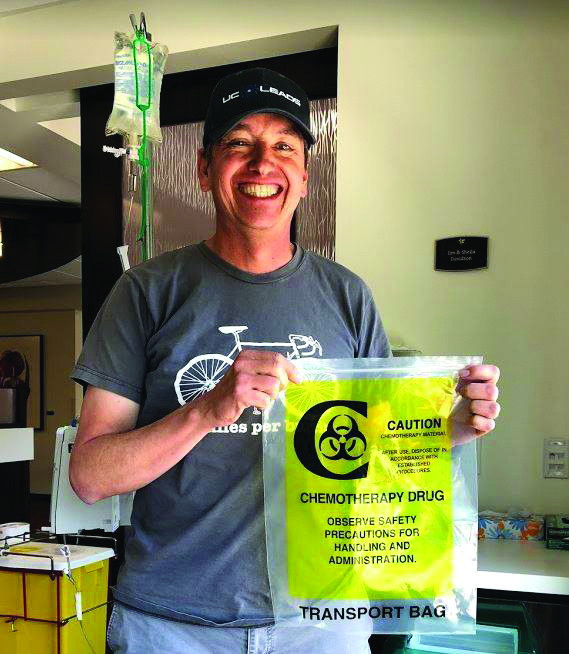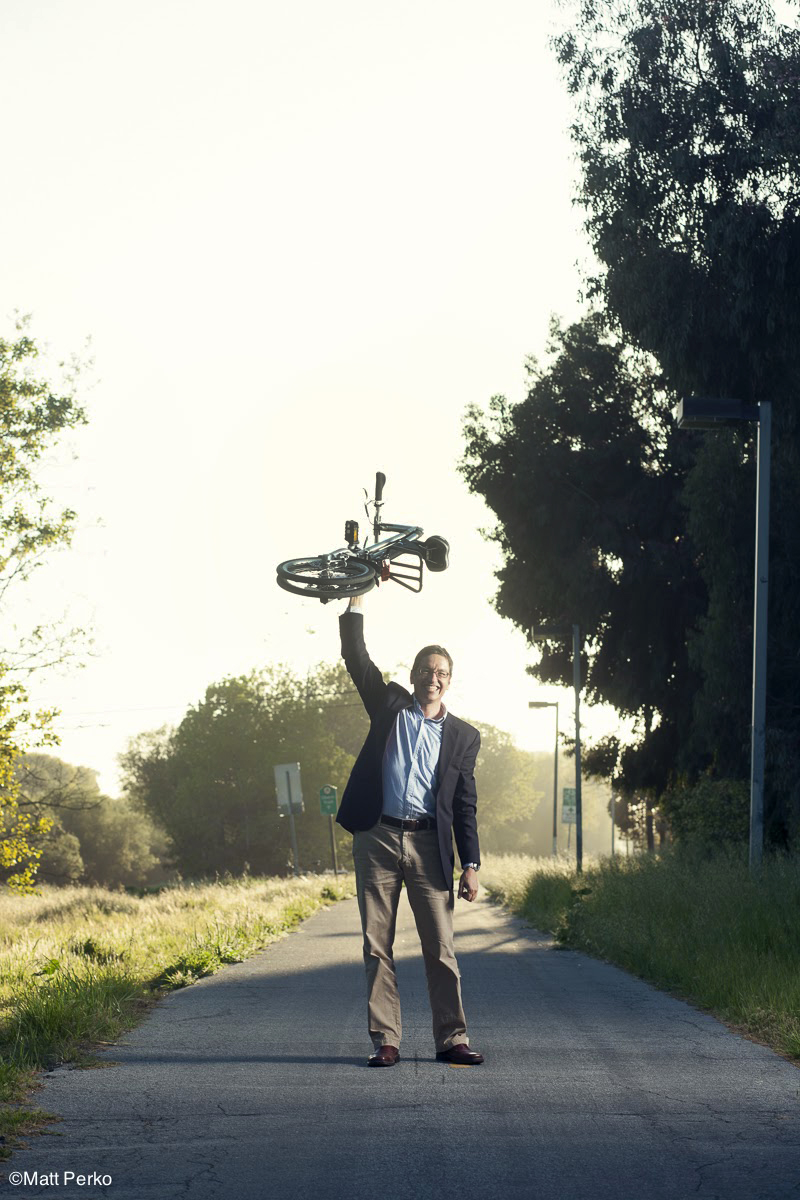News of Don Lubach's throat cancer diagnosis arrived at the worst possible time. He and his wife, Lori, were nearly empty nesters, savoring the last few months with their two teenage daughters who were preparing to launch into the world, one headed for college and the other starting a gap year in New Zealand. “The most harrowing thing was thinking I wouldn’t be there for my girls,” Don shares wistfully. His story began early in 2018, after he noticed one of his lymph nodes felt larger than the other. “I am a bit of a hypochondriac, so I kept mentioning it to Lori,” Don recalls. He met with his primary care doctor, received a CT scan and consulted with Sansum Clinic ENT Physician Andrew Mester, MD, who kindly extended his office hours to get Don in quickly. At this point, Don wasn’t overly worried about the lump in his neck. He considered himself a relatively healthy 53 year-old, an avid cyclist with longevity running in his family. His mother had battled breast cancer during the 1970s, but was still going strong at age 91.

Don tried to stay positive while waiting to hear back on all the tests, but the phone call he received while at work in February of 2018 confirming throat cancer landed like a crushing blow. Don’s career in UC Santa Barbara’s Office of the Ombuds allows him to put his PhD in Higher Education Administration to good use resolving big problems like serious campus conflicts, workplace issues and large academic concerns. Now, Don had his own big problem that needed resolving. One of his first steps was connecting with the members of his Ridley-Tree Cancer Center medical team led by radiation oncologist W. Warren Suh, MD, MPH, FACR, in partnership with medical oncologist Gregg Newman, MD. Nurse navigator Cindy Gasser, RN, OCN reached out to Don at the outset, offering him information, an empathetic ear and an offer to attend his doctor visits. Don says he will never forget that first call with Cindy. He recalls listening closely on his cell phone while pacing in circles in front of the down town library. Cindy soon began joining Don’s appointments with his oncologists, to take notes and help him connect to all of the multidisciplinary staff members and resources that could lend him support, a service Don says was of great comfort for him. “I knew through my whole adventure, she was always there. Before this, I did not know a nurse navigator career even existed or the value it would have for me,” he says.

With no early detection test for throat cancer, Don now felt grateful for the neck mass that tipped off his diagnosis. While he and Lori slowly digested the ocean of cancer statistics, their well-meaning, well-educated friends from all areas of academia provided a constant stream of suggestions on where and how he should receive treatment. Dr. Suh and Dr. Newman helped to steer Don through the data overload, and advised that there were solid alternatives to surgery. Don found Dr. Suh’s clear communication and the way he used his own head and neck when describing the tumor to be refreshing and uncommon for a medical specialist. Both Dr. Suh and Dr. Newman felt confident that more than 35radiation therapy sessions delivered by Ridley-Tree’s world-class linear accelerators alongside simultaneous chemo therapy would yield positive results, and preserve the structures within the throat and neck. “I love how Dr. Newman unpacked this,” remembers Don. “He did explain the treatment would be arduous, but that it was the best choice for this particular cancer.” Don felt so sure about the doctors’ advice that he decided to forgo a third medical opinion, removing the stress of needing to shop around for more solutions. And so, the medical adventure began.
In many of the photos documenting Don’s Cancer Center firsts, his smiles display the positive spirit that carried him throughout his treatment. Like clockwork, he’d arrive by bike, receive his welcome greeting from the front desk and his complimentary coffee or tea, and head for the infusion suite. Were it not for the chemo port, Don says the comfy chair and garden views made the experience almost “spa-like.” He was regularly impressed by how the infusion nurses could aptly gauge if he was having a rough day and provide extra comfort. "They can just look you in the eye and assess how you are feeling,” he says. When a problem would arise, he’d observe the nurses quickly surround the patient needing assistance. “They are as tough as truck mechanics, while handling delicate procedures with grace and confidence,” he notes. This culture of each staff member backing the others up is something that Don noticed with his infusion nurses and the radiation therapists, as well as the patient service representatives and custodians he liked to chat with. “They acted like they have the most important job in the world. I could tell they understood their mission. I thought that was amazing.”
Clinical support staff members helped Don to manage some of the more challenging effects of his disease. Ridley-Tree oncology nutritionist Rebecca Colvin, MPH,RDN, CSO got Don through one of the toughest parts of his treatment: managing new eating routines. She answered endless questions while also consistently evaluating if Don was getting enough nutrition. “She is so well-informed and has statistics and current studies at the ready,” Don effuses. It is impossible to choose one BEST thing about care at Ridley-Tree, according to Don, but his Head and Neck Support Group ranks right near the top. “I always left feeling better – with a handful of tips from other patient I spent time with. The encouragement made it easier to buckle up for the ride,” he shares.
With cancer treatment behind him, Don is delving into what he missed most for many months; for starters, a road trip with his wife and daughter complete with lots of spicy foods. When he reflects on the success of his medical plan, instead of announcing that he kicked cancer’s *&%$, he prefers to say he "danced” with his disease, accepting the invitation to sway and spin with a dangerous partner, moving to the song of his body, accepting the joy and the pain, and feeling the happiness of those who helped him to stay on the floor.